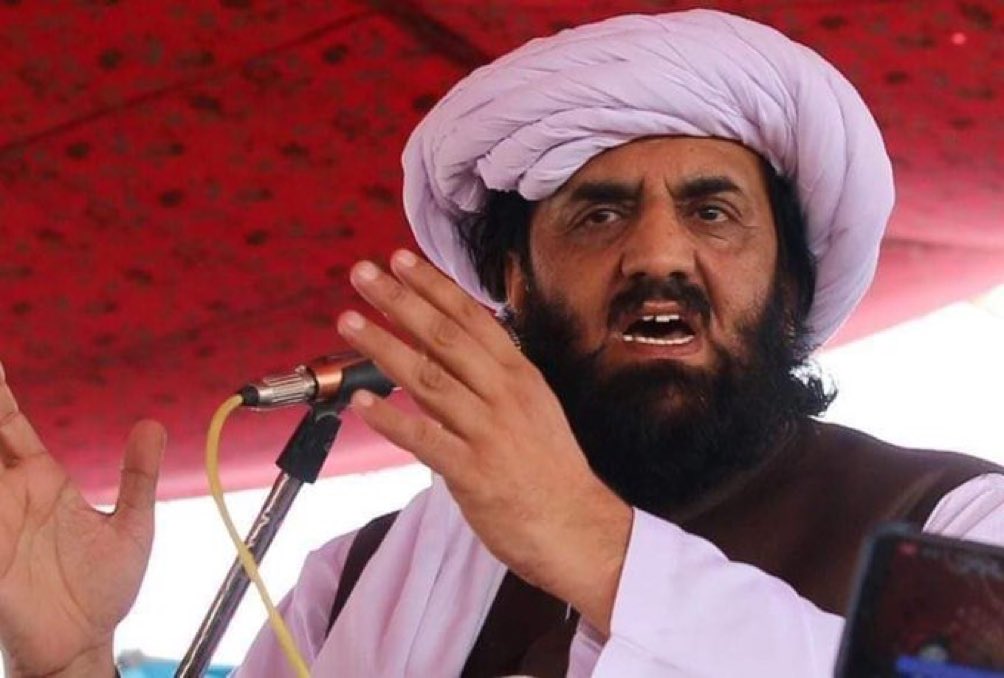Governor Lacks Authority Without NOC, Says Hamdullah
Senior Jamiat Ulema-e-Islam (F) leader Hafiz Hamdullah has said that the Governor of Khyber Pakhtunkhwa (KP) cannot legally accept Chief Minister Ali Amin Gandapur’s resignation without a No Objection Certificate (NOC).
Speaking to reporters outside the Parliament House in Islamabad, Hamdullah emphasized that the Governor, Faisal Karim Kundi, must adhere to constitutional requirements before taking any action. He cautioned that “any deviation from due process will not only create a constitutional vacuum but also deepen the political crisis in the province.”
His comments come amid growing political uncertainty following Gandapur’s announcement that he is stepping down as KP Chief Minister — a move that has already triggered debate within Pakistan Tehreek-e-Insaf (PTI) and beyond.
Political Turbulence in Khyber Pakhtunkhwa
Hafiz Hamdullah warned that any sudden change in KP’s political leadership could further destabilize the province. “If a new administration is imposed without consensus or legal procedure, the situation may deteriorate rapidly,” he said.
Khyber Pakhtunkhwa, bordering Afghanistan, has long been a politically sensitive region. It faces ongoing challenges, including governance issues, security concerns, and post-election unrest. Analysts believe the province’s political balance plays a crucial role in maintaining national stability, especially at a time when Pakistan is grappling with economic uncertainty and public frustration.
According to Hamdullah, political institutions must “avoid hasty decisions” and “respect democratic norms” to prevent further erosion of public trust.
Questioning Political Double Standards
In his remarks, Hamdullah also criticized what he called “selective application of justice” in Pakistan’s political system. He questioned whether the same legal scrutiny applied to other political figures in the past.
“Were treason cases not filed in Gujranwala against three former prime ministers?” he asked, referring to previous politically charged cases that drew national attention. His statement appeared to challenge the perceived inconsistencies in how laws are enforced depending on who holds power.
Political observers noted that Hamdullah’s comments reflect broader concerns among opposition parties about the rule of law and the neutrality of state institutions.
Political Revenge Damages Democracy
Hamdullah stressed that decisions made under political pressure or out of revenge harm the foundations of democracy. “If resignations, arrests, or disqualifications happen under duress, they set dangerous precedents for future governments,” he said.
His statement resonates with a growing sentiment across Pakistan’s opposition benches — that the current political environment has become increasingly coercive. Many parties argue that fair governance and political dialogue have been replaced by polarization and confrontation.
JUI-F Leader Calls for Opposition Restraint
Hafiz Hamdullah further urged opposition parties to remain detached from direct involvement in forming new governments under unstable circumstances. “Opposition groups should stay away from power politics right now,” he said. “This restraint will strengthen democracy and bring much-needed political stability.”
He argued that Pakistan’s fragile political landscape requires dialogue rather than opportunism. By maintaining distance from immediate power struggles, the opposition could act as a balancing force, he added.
A Call for Stability and Democratic Norms
Hafiz Hamdullah’s statements highlight the growing anxiety among political leaders about Pakistan’s volatile governance environment. The question of whether Ali Amin Gandapur’s resignation will be accepted — and on what legal grounds — remains unresolved.
Analysts say that the outcome will set a precedent for how future resignations and leadership changes are handled in the provinces. For now, voices like Hamdullah’s underscore the urgent need for constitutional clarity, political restraint, and respect for democratic institutions to prevent further instability in Pakistan’s already fragile system.















